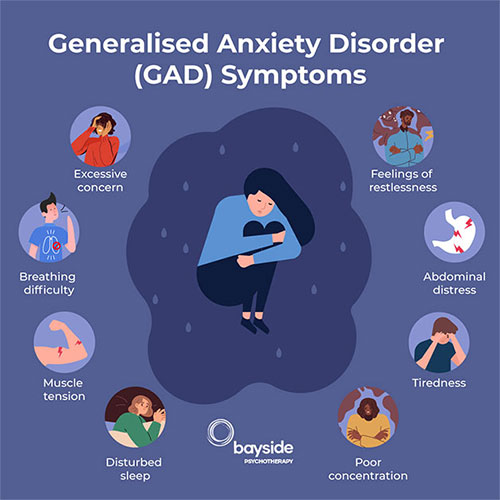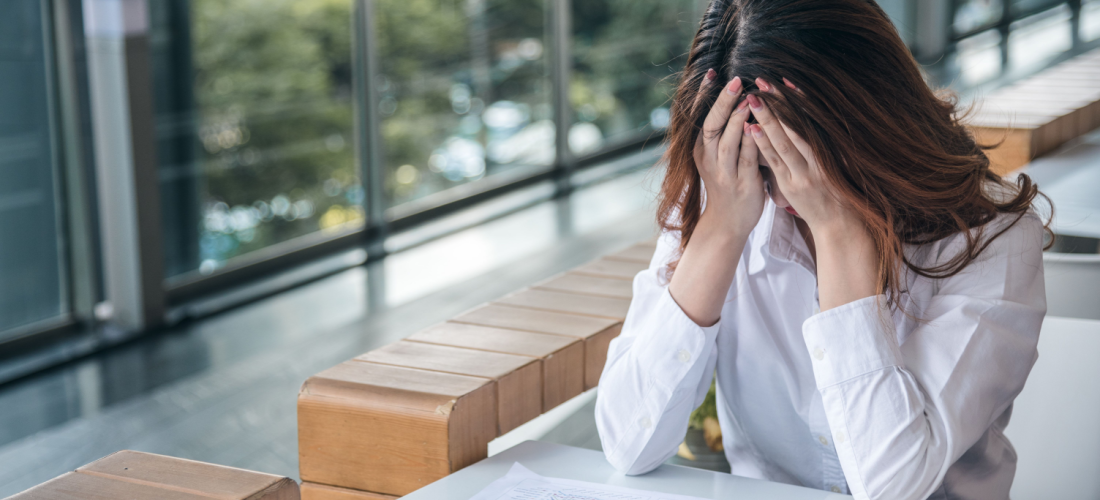How a licensed therapist for anxiety can help you handle daily stress
How a licensed therapist for anxiety can help you handle daily stress
Blog Article
Efficient Methods in Therapy for Anxiety Problem: A Path to Recovery
When facing stress and anxiety conditions, you could really feel overloaded and not sure of where to turn. Effective therapy approaches can lead the way for recovery, supplying you with the tools to navigate your difficulties. From cognitive-behavioral techniques to mindfulness methods, each technique offers unique advantages. Recognizing just how these approaches collaborate can make a significant difference in your journey. So, what are the key elements that will direct you towards lasting change?
Recognizing Stress And Anxiety Conditions: A Detailed Introduction
It's crucial to identify that they encompass a range of problems characterized by too much worry or fear when you assume concerning anxiety problems. These disorders can show up in various methods, including generalised anxiousness disorder, panic disorder, and social stress and anxiety disorder. You might experience signs like fast heartbeat, sweating, or trouble focusing. It prevails to really feel overloaded, and these sensations can interfere with day-to-day life.Understanding the source of anxiousness is essential. They can originate from genes, mind chemistry, or environmental aspects. You may discover that particular situations trigger your anxiety, making it important to recognize these triggers.
Cognitive Behavior Modification (CBT): Improving Thought Patterns

Mindfulness and Leisure Techniques: Growing Present-Moment Awareness
Mindfulness and leisure methods aid you grow present-moment recognition, enabling you to take care of anxiousness better. By concentrating on the present moment, you can damage without the cycle of fear and rumination that usually fuels stress and anxiety. Begin by exercising deep breathing exercises. Inhale slowly via your nose, hold for a moment, then exhale through your mouth. This easy technique can relax your mind and body.Engage in mindfulness meditation by reserving a couple of minutes daily to observe your ideas without judgment. Take notice of your breath, sensations, and the audios around you. You might likewise discover value in modern muscle mass leisure, where you strained and kick back each muscular tissue team, promoting physical and psychological ease.Incorporating these methods right into your daily routine can produce a better sense of control, minimize anxiety signs and symptoms, and improve your overall wellness. Bear in mind, consistency is vital to experiencing the benefits.
Exposure Therapy: Encountering Anxieties Gradually
Exposure treatment aids you face your fears gradually, permitting you to develop self-confidence in time. By utilizing progressive direct exposure techniques, you can gradually confront what makes you nervous while developing efficient coping devices. This process not just reduces your fear however likewise encourages you to manage anxiousness extra effectively.
Steady Direct Exposure Techniques
When you challenge your fears slowly, you can properly decrease anxiousness and restore control over your life. Progressive direct exposure methods entail encountering your concerns detailed, beginning with much less frightening circumstances. You might start by picturing the been afraid scenario, then advance to watching photos or video clips connected to it. Ultimately, you can exercise facing the fear in reality, yet only when you feel all set. This approach enables you to construct self-confidence as you move via each phase. Keep in mind to speed yourself; rushing can enhance anxiety. Celebrate tiny victories along the way, as each action forward equips you. By constantly using these techniques, you'll find that your concerns begin to shed their grasp on your mind.
Building Coping Devices
Building effective coping systems is important for taking care of anxiety, especially as you encounter your concerns gradually through direct exposure therapy. Start by recognizing your details worries and breaking them down into convenient actions. This way, you can progressively face each worry without coming to be overloaded. For circumstances, if you battle with social situations, start by practicing tiny communications, like welcoming a neighbor.Alongside steady exposure, include relaxation methods such as deep breathing or mindfulness to soothe your mind before dealing with triggers. Keep a journal to track your progress and commemorate small success. Border yourself with supportive good friends or a specialist that can guide you. Bear in mind, it's a trip-- persistence and perseverance will reinforce your coping devices, causing higher durability against anxiety.
Encouraging Therapy: Structure Count On and Relationship
To efficiently sustain someone with anxiousness, developing trust fund and rapport is crucial from the extremely first session. You'll want to create a risk-free room where they feel comfortable sharing their thoughts and sensations without judgment. Energetic listening is vital; program authentic passion in what they share. Acknowledge their sensations and validate their experiences. It is very important to be understanding, as this aids develop a link and motivates openness.Be consistent in your strategy and keep discretion to additional enhance that trust fund. Usage open body language and make eye call to convey your listening. Bear in mind, your persistence goes a long method; structure rapport takes time, and it's important to respect their pace. By promoting this helpful setting, you'll encourage them to involve even more totally in the restorative procedure, making it less complicated for them to discover their anxiety and job toward recuperation.
Group Treatment: Shared Experiences and Cumulative Healing
Team treatment can be an effective device for those handling stress and anxiety conditions, as it allows people to share their experiences and discover relief in the understanding of others. In this encouraging setting, you can express your sensations without concern of judgment. Listening to others' stories can normalize your own experiences, making you feel much less alone in your struggle.Participating in group treatment helps you create coping techniques through shared knowledge and insights. As you pay attention to others, you might discover brand-new ways to tackle your anxiousness that you hadn't taken into consideration before.Moreover, the cumulative recovery that takes place in these sessions can promote a feeling of community, reminding you that you're not encountering your challenges alone.Building connections with others who understand your struggle can improve your self-confidence and motivation to challenge your stress and anxiety. Team therapy produces a space where growth and recovery end up being a common trip, encouraging you to take steps toward healing.
Incorporating Way Of Living Modifications: Holistic Strategies to Stress And Anxiety Management
While therapy supplies important support, incorporating way of living adjustments can greatly boost your capacity to handle anxiousness. Begin by integrating regular physical task right into your regimen. Workout releases endorphins, which can boost your mood and lower stress and anxiety. Next here off, take note of your diet regimen. Eating a balanced diet regimen abundant in fruits, vegetables, and entire grains can favorably impact your mental wellness. Don't forget about rest-- objective for 7-9 hours per night, as quality remainder is vital for emotional regulation.Mindfulness methods, such as meditation or yoga exercise, can also help you remain based and present. Take into consideration alloting time each day to practice these techniques. Limit caffeine and alcohol intake, as they can exacerbate anxiety signs. By making these all natural modifications, you produce a more powerful foundation for handling anxiety, enhancing the benefits acquired from therapy. Keep in mind, every little step counts on your path to recovery.
Frequently Asked Concerns
What Are the Usual Physical Signs of Anxiety Disorders?
Typical physical signs and symptoms of anxiousness problems include rapid heart rate, shortness of breath, muscle stress, sweating, and migraines. You may likewise experience fatigue, wooziness, or stomach problems, which can even more complicate your everyday life.
How Much Time Does Counseling for Anxiousness Commonly Take?

Counseling for anxiety usually takes a couple of weeks to a number of months, relying on your individual requirements and development. counselling for anxiety. You'll discover that routine sessions help you establish coping approaches and get insights into your anxiousness
Can Stress And Anxiety Conditions Be Entirely Healed?

What Should I Do in an Anxiety attack?
During a panic attack, focus on your breathing. Breathe in deeply via your nose, hold for a minute, then breathe out slowly - counselling for anxiety. Ground on your own by calling things around you, and remind yourself it will certainly pass
Are There Medications for Anxiety Disorders?
Yes, there are numerous drugs for anxiousness conditions, including benzodiazepines and antidepressants. You must speak with a healthcare professional to discover the ideal treatment plan customized to your certain needs and circumstances for the very best outcomes. When you think regarding anxiety disorders, it's important to recognize that they include a range of conditions identified by too much anxiety or concern. These conditions can manifest in different ways, including generalised anxiousness condition, panic problem, and social anxiety disorder. Structure efficient coping devices is crucial for managing stress and anxiety, particularly as you encounter your anxieties gradually through direct exposure therapy. Group therapy can be a powerful device for those dealing with anxiety problems, as it allows people to share their experiences and locate solace in the understanding of others. As you listen to others, you might uncover new methods to tackle your anxiousness that you had not thought about before.Moreover, the cumulative recovery that takes place in these sessions can promote a feeling of community, reminding you that you're not encountering your obstacles alone.Building connections with others that understand your battle can improve your confidence and motivation to face your stress and anxiety.
Report this page